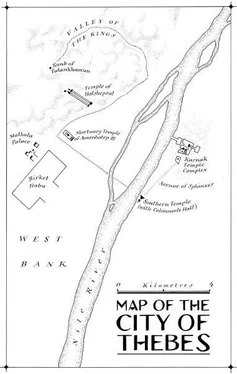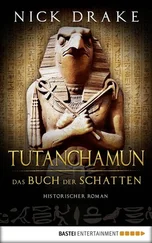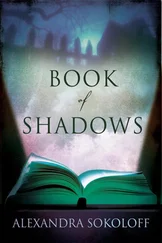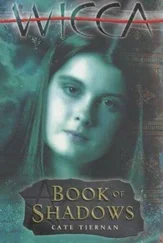Nick Drake - Tutankhamun - The Book of Shadows
Здесь есть возможность читать онлайн «Nick Drake - Tutankhamun - The Book of Shadows» весь текст электронной книги совершенно бесплатно (целиком полную версию без сокращений). В некоторых случаях можно слушать аудио, скачать через торрент в формате fb2 и присутствует краткое содержание. Жанр: Исторический детектив, на английском языке. Описание произведения, (предисловие) а так же отзывы посетителей доступны на портале библиотеки ЛибКат.
- Название:Tutankhamun: The Book of Shadows
- Автор:
- Жанр:
- Год:неизвестен
- ISBN:нет данных
- Рейтинг книги:4 / 5. Голосов: 1
-
Избранное:Добавить в избранное
- Отзывы:
-
Ваша оценка:
- 80
- 1
- 2
- 3
- 4
- 5
Tutankhamun: The Book of Shadows: краткое содержание, описание и аннотация
Предлагаем к чтению аннотацию, описание, краткое содержание или предисловие (зависит от того, что написал сам автор книги «Tutankhamun: The Book of Shadows»). Если вы не нашли необходимую информацию о книге — напишите в комментариях, мы постараемся отыскать её.
Tutankhamun: The Book of Shadows — читать онлайн бесплатно полную книгу (весь текст) целиком
Ниже представлен текст книги, разбитый по страницам. Система сохранения места последней прочитанной страницы, позволяет с удобством читать онлайн бесплатно книгу «Tutankhamun: The Book of Shadows», без необходимости каждый раз заново искать на чём Вы остановились. Поставьте закладку, и сможете в любой момент перейти на страницу, на которой закончили чтение.
Интервал:
Закладка:
‘And remember also that the killer is keeping you dancing between two worlds,’ he said, and smiled wryly.
If we were right, and the same man was responsible for both crimes, then all I was doing was leaping from clue to clue, like a dog following a trail of food, eyes focused on the ground, not seeing anything else.
I bade Khety good night, and turned wearily away towards my own home for once.
21
The white sun of late morning exonerated nothing and no one from its terrible gaze. The city seemed baked hard and dry, brown, yellow and white, in the heat. I looked up; swooping in and out of the dazzle, I saw a falcon’s dark wings spread wide, making delicate adjustments as it drifted on the levels and currents of the hot desert air. He was Horus, with the right eye of the sun and the left eye of the moon. What did he see, staring down at our strange little world of statues and monsters, crowds and parades, temples and hovels, wealth and pigsties? What would he think of this ceremonial group of tiny figures, protected by feeble sunshades, making its slow, formal way along the Avenue of Sphinxes, lined with perfectly clipped trees, towards the Southern Temple? Did he notice me, dressed like a performer in the white robes of a priest? Did he see us all, in our green world of fields and trees, dependent on the glittering serpent of the Great River, and surrounded by the infinity of the eternal Red Land? What did he see beyond the horizon? I watched as he lingered above us for a long moment, then shrugged and tilted away in the direction of the river, before disappearing over the rooftops.
I had slept badly, again. I had dreamed of the boy. In the dream he wore the face of Neferet, the young girl, and she was smiling at me mysteriously. Then slowly, carefully, I began to peel off her face, but she continued to smile. And when I finally pulled her face off over the top of her head, I saw beneath only a mask of darkness, and smelt the sweet stench of decay. I had woken suddenly, my head pounding. Perhaps the rough wine from the night before had been even rougher than I thought. In the morning I had had no sympathy from Tanefert. And when I had returned from the barber with my head shaved, she had just shaken her head.
‘How do I look?’ I had asked, smoothing my hand over my polished scalp.
‘You look like a big baby,’ she had said, unhelpfully.
‘Not like a priest of the temple, then?’
To her credit, she had laughed out loud.
‘I don’t think so…And don’t come home until it has all grown back.’
Along the Avenue of Sphinxes, well-managed crowds stood mutely and in conformity in the searing stillness of the air, crying out praises as the King and Queen passed by in their chariot. Tutankhamun was wearing the Blue Crown, and was carefully surrounded by a tight phalanx of palace guards, headdress feathers nodding bright in the light, bows and arrows polished and glittering. Theban army soldiers stood all along the Avenue. Simut was doing his job, using all the resources under his command. Ay followed in his chariot. Simut and I rode together. He watched everything with intense attention for any detail out of place, any sign of a problem. Then came a long, shuffling train of many other palace officials and priests, Khay among them, all in identical white robes, each with their sweating servants holding sunshades over their masters. I noticed a street dog running along beside this strangely sombre cavalcade, roving in and out of the shadows of the trees and the marching soldiers. He barked and barked, baring his teeth as if he had seen the shadow of an enemy, or an intruder. Suddenly one of the Theban soldiers shot it dead with an arrow. The crowd turned in fear; but no one panicked, and the cavalcade continued.
By the time the procession arrived at the temple entrance, sweat was running down my spine. A linen awning had been set up before the huge double doors, decorated with gold and silver, which led to the new Colonnade Hall. The King’s grandfather had begun its construction in my own youth, with an ambitious plan to replace the warren of small, ancient shrines with what was to be a vast, dark modern structure, with towering stone columns big enough to hold crowds of people on their broad tops. It was to be the wonder of the world, and today I would be exceptionally privileged to see it with my own eyes.
The area before the temple was crowded with thousands of priests in robes-so many they made the immense open space look like a great white lake when they prostrated themselves. The temple musicians struck up a new rhythm and melody. Simut’s gaze was everywhere, considering all the contingencies, checking the position of his archers on the perimeter walls, the precise formation of his guards that flanked the King and Queen in protection, and examining everyone and everything with his dark eyes. This time there could be no mistakes, no surprises of blood, and no mass panic.
Finally, to a fanfare from the temple trumpets, raised and shining in the light, we processed through the great doors, under the huge carved stones of the outer walls, and into the great colonnade. My first impression was of a realm of shadows. Perfectly carved columns, of a much greater circumference than any palm tree-of the circumference of ten trees-soared up into the cool, dark, mysterious air; fourteen of them, in two great rows, each perhaps thirty cubits high, holding up the massive roof span, like a colossal arcade of stone under a night sky of granite. Thin shafts of light slanted down from the high, narrow clerestory windows, in slices and slivers of intense brightness; insubstantial motes drifted and danced for a brief instant of glory. Wherever the intense light touched the stone, it illuminated the detail of the painted carvings that covered every surface.
The long train of dignitaries and officials shuffled in behind us, all gathering, pushing and complaining to find a place to stand under the vast columns. The grand architecture of the hall made them seem diminished and unimportant. They sounded like a herd of goats, breathing, coughing, shuffling and whispering their little comments of amazement at their first view of this new wonder. Yet these were the men who controlled the power and the glory of the kingdom. The men of the royal domain, the men of the bureaucracies, and the men of the temples; all those who had lost their power and wealth under Akhenaten, the King’s father, and now had it back, claiming to have restored maat to the Two Lands. Of course, what had truly been restored was their implacable authority and licence to control and develop the infinite resources and business opportunities of the lands for the benefit of their own treasuries. And the King himself, however passively, was the icon of this restoration. In another temple precinct, at the Karnak Temple, early in his reign, he had ordered-or rather, Ay had ordered in his name-a stone stela to be set up on which was carved a statement for all time, and its words were well known: ‘ The land was turned upside down and the Gods had turned their backs on the entire land. But after many days my majesty rose upon the throne of his father and ruled over the territory of Horus, both the Black Land and the Red Land being under his control .’ And so it now seemed, for what was left unfinished by the grandfather was completed in the presence of the grandson; and that strange interregnum of Akhenaten had become a piece of great forgetting, his buildings unattended, his images ignored, his name unspoken, his memory unworshipped, as if he had never been. Only the memory of his religious enlightenment, and his attempt to take all power from the traditional priests, remained, repressed but powerful for many.
The royal group were invited to examine the wall carvings that ran all along the length of the new, enclosing walls. Priests held up torches, or gathered together in groups so that their white robes reflected and enhanced the slanting light, to reveal the detail of the brightly painted raised relief work where it lay obscured in the darkness. The flickering flames seemed to make the colourful images move. I worked hard to keep my position close to the King and Queen, but also because I was curious to see these wonders. Firstly, by the entrance, a strong ray of sunlight, by coincidence or contrivance, illuminated the carved features of the King himself. I watched as he stood before his carved stone image greeting the God of the temple. Tutankhamun, flesh and blood, with his childish fears and delicate face, assessed his stone reflection, which bore the wide shoulders and decisive, authoritative gestures of a King. I must confess here they looked unalike, but for the carefully rendered similarities of the profile and the ears.
Читать дальшеИнтервал:
Закладка:
Похожие книги на «Tutankhamun: The Book of Shadows»
Представляем Вашему вниманию похожие книги на «Tutankhamun: The Book of Shadows» списком для выбора. Мы отобрали схожую по названию и смыслу литературу в надежде предоставить читателям больше вариантов отыскать новые, интересные, ещё непрочитанные произведения.
Обсуждение, отзывы о книге «Tutankhamun: The Book of Shadows» и просто собственные мнения читателей. Оставьте ваши комментарии, напишите, что Вы думаете о произведении, его смысле или главных героях. Укажите что конкретно понравилось, а что нет, и почему Вы так считаете.











